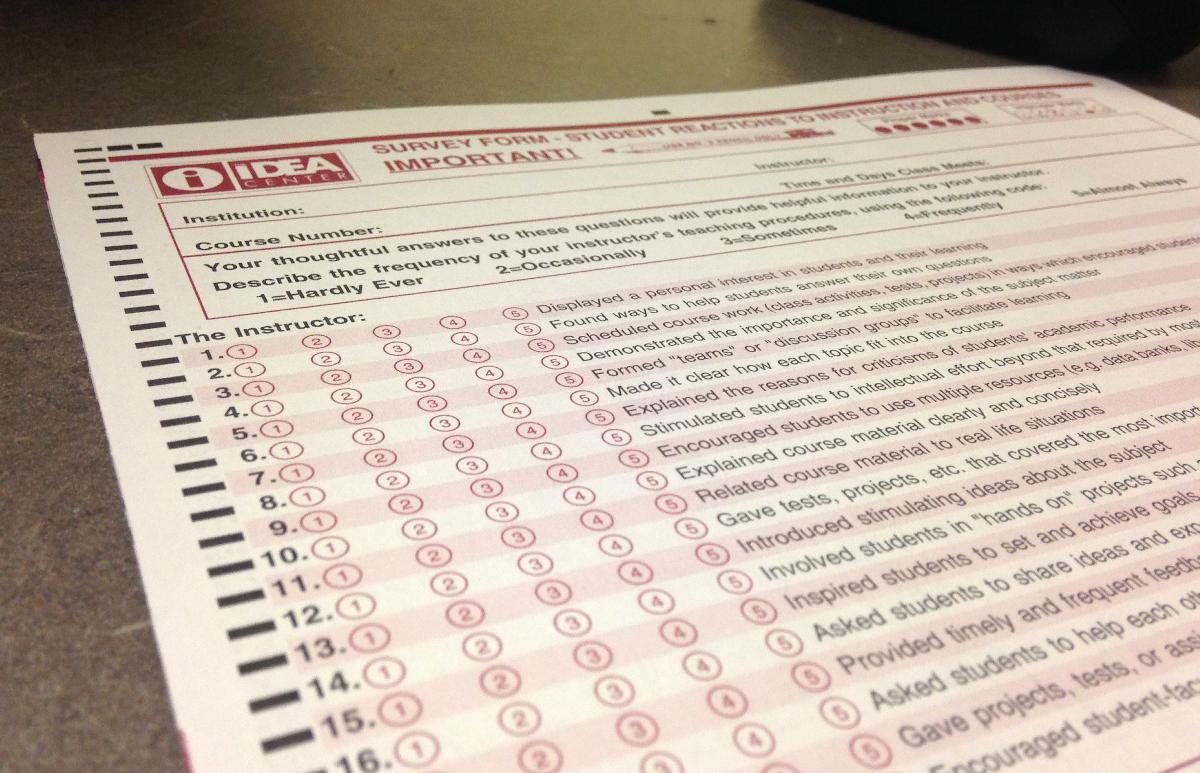Students’ contribution in filling out the Individual Development and Educational Assessment evaluation forms have far-reaching ramifications that could contribute to the effectiveness of the courses taught at the university.
Biola places student learning as one of its top priorities and the IDEA evaluations are essential to the success of this goal, said Shelly Cunningham, director of faculty development. In the fall 2013 semester, Biola invested approximately $8,000 in order to send out the reports to the IDEA organization for processing and to receive comprehensive feedback on how to better improve and implement the efficiency of the university’s education system.
IDEA forms are highly extensive in detailing and pinpointing the positive and negative elements of each individual class. Every professor sets certain goals and objectives for their class at the beginning of each semester by writing a report and submitting it to the dean of their specific department. The IDEA evaluations tell them whether or not they accomplished those set objectives at the end of the semester, said Cunningham.
STUDENTS RATE THEIR PROFESSORS
When students fill out the forms, they rate the class based on several important elements. Some of the main goals for all classes include being able to apply the course material in practical ways, understanding how to analyze and critically evaluate ideas, and gaining factual knowledge of the course subject. After the assessment of each individual form by the IDEA organization is completed, the results are put into quantifiable data and given back to the school to assess all of the professors as well as the quality of their courses, said Cunningham.
“When I fill out the forms I evaluate myself on whether or not I put in the effort for the class, but I am also honest about if the professor was really a good teacher or not. These evaluations are for me and future students so hopefully our opinions will better the system,” said Marina Rodriguez, a junior kinesiology major.
These evaluations empower professors to take the constructive criticism and reevaluate their class in order to improve and better aid in student success.
Student success not only reflects the quality of the classes taught at Biola, but also testifies to the professors and the school in its entirety. “This is a formal assessment that could change the future of the course…There are long ranging ramifications for the university,” said Allen Yeh, professor of intercultural studies and missiology.
Biola places student learning as one of its top priorities and the IDEA evaluations are essential to the success of this goal, said Shelly Cunningham, director of faculty development. In the fall 2013 semester, Biola invested approximately $8,000 in order to send out the reports to the IDEA organization for processing and to receive comprehensive feedback on how to better improve and implement the efficiency of the university’s education system.
IDEA forms are highly extensive in detailing and pinpointing the positive and negative elements of each individual class. Every professor sets certain goals and objectives for their class at the beginning of each semester by writing a report and submitting it to the dean of their specific department. The IDEA evaluations tell them whether or not they accomplished those set objectives at the end of the semester, said Cunningham.







